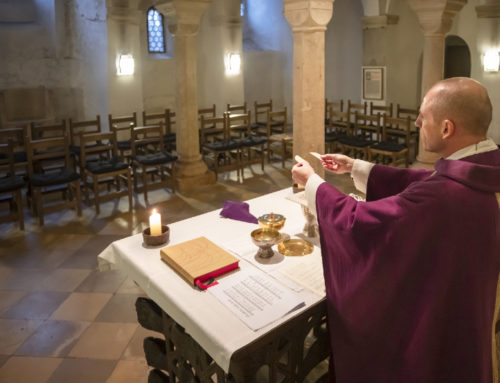
Throne Bernini Holy Spirit Dove, Saint Peter’s Basilica in Rome
Let us now begin to speak about the third method of prayer, which is truly astonishing and hard to explain. For those ignorant of it, it is not only difficult to understand but virtually incredible, and there are very few to be found who practise it. It seems to me that it has deserted us along with the virtue of obedience. For it is the love of obedience that delivers us from entanglement with this evil world, rendering us free from anxiety and impassioned craving. It makes us wholehearted and unflagging in pursuit of our aim — provided, of course, that we find an unerring guide. For if through obedience you make yourself dead to every worldly and bodily attachment, how can anything transient enslave your intellect? If you entrust all the care of your soul and body to God and to your spiritual father, no longer living for yourself or desiring the good opinion of others, what anxiety can distract you?
This third method, then, destroys the invisible wiles of the demons, with which as with ropes they seek to drag down the intellect into all manner of devious thoughts. Set at liberty, the intellect wages war with its full strength, scrutinizing the thoughts insinuated by the enemy and with masterful dexterity expelling them, while the heart in its purity offers prayers to God. This is the beginning of a life of true seclusion, and those who fail to make such a beginning exhaust themselves in vain.
The starting-point of this third method of prayer is not to gaze upwards, to raise one’s hands aloft, to concentrate one’s thoughts and. to call down help from heaven. These, as we said, are the marks of the first form of delusion. Nor does it begin, as the second method does, by keeping guard over the senses with the intellect, while failing to observe the enemies who attack from within. In such a case, a person is unaware of it; taken captive, he cannot retaliate against his captors. His enemies constantly attack him, from behind and even face to face, and fill him with self-esteem and arrogance.
If you desire to embark on this light-giving and joyful task, begin as follows. You must first practise exact obedience, as described above, and so act always with a pure conscience; for without obedience it is impossible for your conscience to be pure. And you must keep your conscience pure in three respects: first, with respect to God; second, with respect to your spiritual father; and third, with respect to other people and to material things. With respect to God you must keep your conscience pure by refraining from doing anything that conflicts with the worship due to Him. With respect to your spiritual father do everything he tells you to do, neither more nor less, and be guided by his purpose and will. With respect to other people, you must keep your conscience pure by not doing to them anything that you hate (cf. Tobit 4:15) and that you do not want them to do to you. With respect to material things, you must take care not to misuse them, whether food, drink, clothing. In brief, do everything as if you were in the presence of God, so that your conscience does not rebuke you in any way.
Excerpt from the Philokalia: The Three Methods of Prayer attributed to St. Symeon the New Theologian




